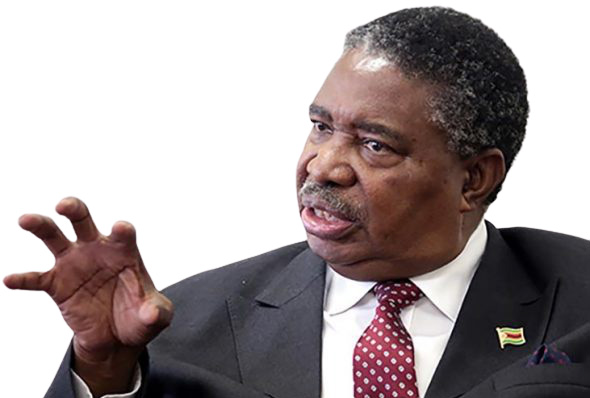- Ram laughs off the demand by former Zim vice president and his son
- Says they have ‘eaten’ their money and now want a bail-out
- The Mphokos also want interest at 5% per annum from January 2019
TEFO PHEAGE
The CEO of Choppies Enterprises, Ramachandran Ottapathu, has laughed off as absurd and ambitious a US$44m shares bill from former Zimbabwean vice president Phelekezela Mphoko and his son Siqokoqela who have taken Choppies Enterprises, its distribution centre and Nanavac Investments to court demanding what they say is an outstanding US$44 million for their 51 percent shares in the company.
Better known as Ram, the COO of Choppies says the matter was long closed. “This is a classic case of someone ‘eating’ his money and finishing it, then coming back to say they need more,” he said in an interview. “They need a bail-out.” He added that their lawyers will respond accordingly to the demand.
The Mphoko family held shares in the supermarket chain before it was pushed out of Zimbabwe in January last year. Through their lawyer Zibusiso Ncube, Mphoko and his son have filed a summons at the Bulawayo High Court seeking an order declaring their entitlement to payment of the true value of the 51 percent shares that they held before they were booted out. The two also claim interest at the rate of 5 percent per annum from 9 January 2019 when they were “unlawfully” divested of their shareholding to-date in full payment.
In their declaration of the claim, the Mphokos have submitted that at all material times they were the majority shareholders in Nanavac Investments, holding an aggregate of 51 percent shares. “First applicant (Siqokoqela) held 25.5% shares and second applicant (Phelekezela) held 25.5% shares in first defendant (Nanavac Investments), while the second defendant (Choppies Enterprises) held the remaining 49% of the first defendant (Nanavac Investments) shares,” reads the declaration.
“In about 2018, a dispute arose between first applicant and second defendant ensuing within the second and third defendants instituting authorised proceedings in opposition to first plaintiff and his spouse and the primary defendant on the Excessive Courtroom. The second defendant instituted malicious and false prison complaints to the police, ensuing within the establishment of magistrates’ courtroom proceedings in opposition to the primary plaintiff and his spouse.”

